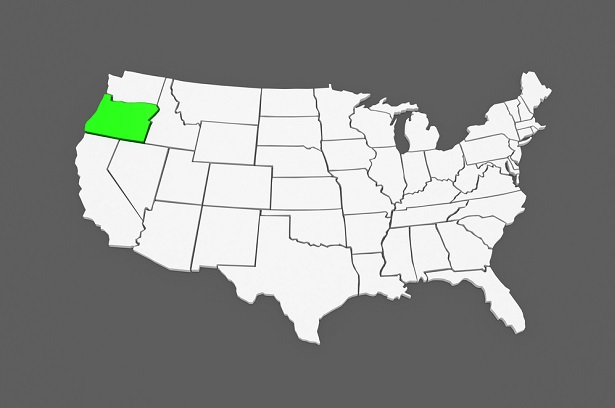Oregon is among the first states to implement automatic IRAs for private sector workers who don't have access to a workplace retirement plan. It's program, OregonSaves, is a Roth IRA that automatically enrolls workers, who may choose to opt out, withdraw prior contributions, or change their contribution amount at any time. As of the end of 2019, OregonSaves had been rolled out to all eligible firms in the state with five or more employees, and is expected to enroll all eligible firms by later this year.
Recommended For You
To examine the impact the program is having on employers in the state, Pew Charitable Trust surveyed over 2,500 private companies in 2019 and 2020 that were participating in the program.
Roughly 80% of respondents said they didn't pay any out-of-pocket costs with the program. Those who did incur some out-of-pocket costs were paying for fees to a third party hired to administer contributions, and wages for extra time staff needed to set up the program and register employees.
"Prior Pew research found that the major reason many small businesses did not offer retirement benefits was the cost of starting a plan," according to the report. "Given the variety of firms surveyed in terms of size, workforce, industry, age, and other factors, an important takeaway of this report is that OregonSaves does not result in costs for the vast majority of employers. The implication is that employers can, at no cost to most of them, offer a retirement benefit through a state-facilitated auto-IRA."
Pew called for additional research to examine whether third-party providers were charging higher fees for assistance on OregonSaves plans, and whether large firms with the ability to handle registration and processing were choosing to outsource those functions anyway.
Respondents clearly associated the time spent setting up the program within their firm as a cost. Pew allowed respondents to give open-ended answers, and several cited time spent in meetings, preparing documents and explaining the program as an out-of-pocket cost incurred. Some respondents felt this time was justified and considered it a minimal expense, but others considered it more of a burden.
Employer satisfaction with OregonSaves
Employers' satisfaction with the program is clearly linked with whether or not they paid out-of-pocket costs, Pew found. Half of employers who reported no out-of-pocket costs said they were at least somewhat satisfied with the program, while about one in five reported some level of dissatisfaction.
That sentiment is roughly reversed among employers who did incur out-of-pocket costs. Just 27% of employers with OOP costs said they were satisfied with the plan, compared with over 41% who were at least somewhat dissatisfied.
Other findings regarding the impact OregonSaves has on employers include:
- Midsized companies, those with between 10 and 49 employees, were most likely to report paying some out-of-pocket costs.
- Employers in some industries — leisure and hospitality, natural resources and mining, and administrative and support services — were more likely to have OOP costs than those in other industries. "In the case of leisure and hospitality and administrative and support services, this perhaps reflects the nature of workforces that are characterized by high rates of employee turnover, leading to frequent payroll changes," according to Pew.
- Employers were more likely to pay OOP costs if they enrolled early in the program's rollout, dropping from over 26% for those who enrolled by mid-2019, to under 17% for those who had enrolled by early 2020.
"As auto-IRA programs mature, employers and administrators of such programs may be able to work with payroll and bookkeeping service providers to reduce or eliminate processing costs," according to the report. "In addition, the decline in reports of OOP costs over the course of the survey rounds may suggest that OregonSaves or employers are gaining experience and efficiency with program tasks such as facilitating payroll contributions, both of which lower costs."
© 2025 ALM Global, LLC, All Rights Reserved. Request academic re-use from www.copyright.com. All other uses, submit a request to [email protected]. For more information visit Asset & Logo Licensing.








